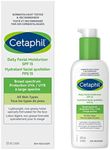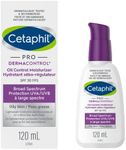Best Face Moisturizer For Teens
From leading brands and best sellers available on the web.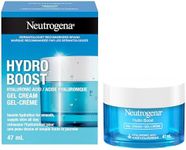
Neutrogena
11%OFF
Neutrogena Hydro Boost Gel Cream Face Moisturizer - Oil-Free Facial Cream with Hyaluronic Acid for Dry Skin - Lightweight, Non-Comedogenic Daily Hydrating Formula, 47mL
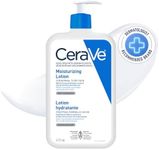
CeraVe
CeraVe Moisturizing Lotion, Daily Lightweight Face & Body Moisturizer with Hyaluronic Acid & Ceramides, Suitable for Dry & Sensitive Skin, Fragrance-Free, Non-Comedogenic & Allergy Tested, 473 mL
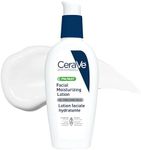
CeraVe
CeraVe Facial Moisturizing Lotion Pm | Ultra Lightweight, Night Face Moisturizer With Hyaluronic Acid | Fragrance Free, 89 Milliliters (1 Pack)
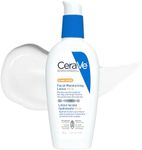
CeraVe
CeraVe Facial Moisturizer with SPF 30. Face Sunscreen Lotion with Hyaluronic Acid, Niacinamide & Ceramides for Women & Men. Oil-free, normal to dry skin. Verified Extended Use Date, Travel Size 89ML

Neutrogena
11%OFF
Neutrogena Hydro Boost Gel Cream with SPF 25 - Broad Spectrum UVA/UVB Protection & Hyaluronic Acid - Lightweight Oil-Free Facial Moisturizer for Smooth, Hydrated Skin - Non-Comedogenic, 47mL

Cetaphil
5%OFF
Cetaphil Optimal Hydration Daily Glow Cream for Sensitive, Dry and Dehydrated Skin – 48hr Hydration – with Hyaluronic Acid, Niacinamide, Vitamin E & Vitamin B5 – Dermatologist Recommended, 48g

Aveeno
18%OFF
Aveeno Calm and Restore Oat Gel Facial Moisturizer for Sensitive Skin, Lightweight Gel Cream Face Moisturizer with Prebiotic Oat and Feverfew, Hypoallergenic, Fragrance and Paraben-free, 48 Grams

CeraVe
CeraVe Ultra-Light Moisturizing Gel, Lightweight Face Moisturizer with Ceramides, Niacinamide, Hyaluronic Acid, Fragrance-Free, Dermatologist Recommended, 52 mL

Cetaphil
5%OFF
Cetaphil Daily Hydrating Lotion with Hyaluronic Acid - 24Hr Hydration - Fragrance-Free, Paraben-Free - For Dry and Sensitive Skin, 88ml

